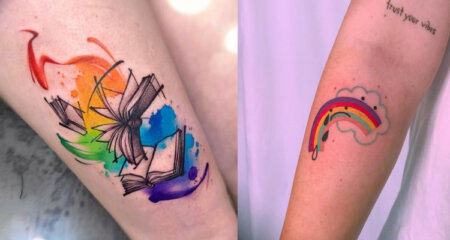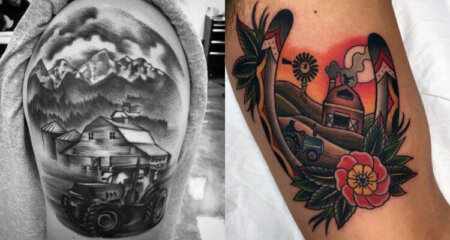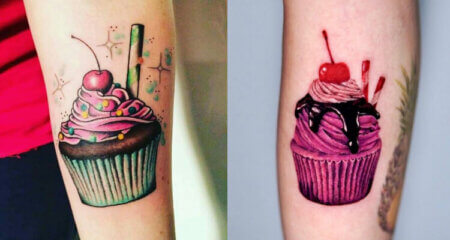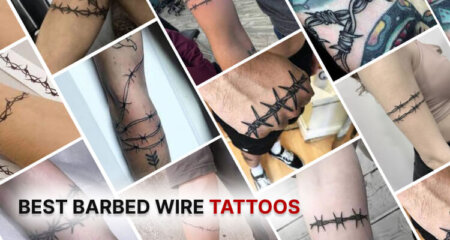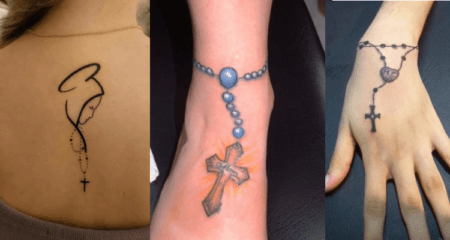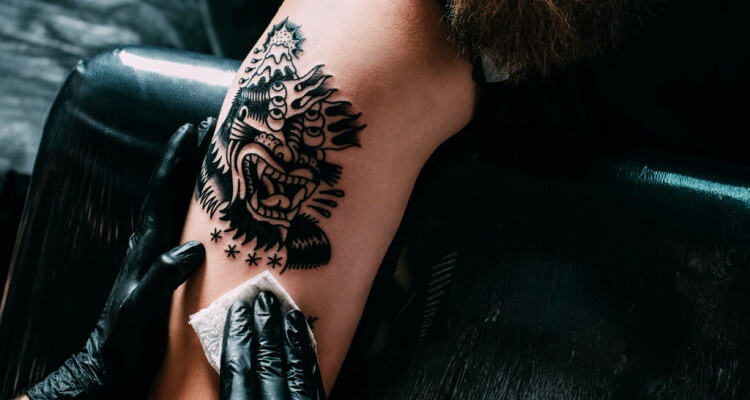
Why are Tattoo Artists Advise Against Numbing Cream?
Posted on
Tattoos are in the mainstream today. There was a time when Tattoo Artists Advise were considered deviant. People with tattoos were typically looked down upon by society because of their association with delinquency in most part of the world. But today, that’s not how it is. In fact, permanent body artwork has become the most popular way of adorning one’s body.
You can choose to get any designs of your choice. Some people use tattoos as a means to express their unique personality or ideology. Others get tattoos to show their association to particular community or group. Why so ever you get a tattoo, they look awesome and there is no denying!
Today, more than 225 million people have at least one tattoo worldwide. Nowadays, individuals from diverse backgrounds are opting to get tattoos. The number of individuals with tattoos has increased by nearly 50% since 2012, and it is still growing.
There is no doubt that tattoos look gorgeous. They are a great way to showcase the unique side of your personality. BUT at the same time, we cannot ignore that tattoos come with pain.
No matter which part of your body you get a tattoo on, pain is an inevitable part of the process. Unfortunately, the potential pain is one of the factors that often deter individuals from getting a tattoo. Well, numbing creams can help you alleviate pain. However, it is worth noting that not all tattoo artists favour using numbing creams.
So, what’s the reason why tattoo artists advise against numbing creams?
Are you pondering the same?
If yes, then you will definitely love reading this post.
In this post, we shall discuss all the possible reasons that make tattoo artists unenthusiastic about using numbing creams prior to tattooing.
So, without any further ado, let’s jump right in…
What are Numbing Creams?
Numbing creams or lotions, as the name says, are topical anaesthetic creams that are applied to the skin to induce numbness. More often than not, these creams are used for minor surgical procedures. However, these creams are pretty much popular in the tattoo industry these days. Some tattoo artists prefer using numbing lotions on their clients in order to make the tattooing process more comfortable. While others hate using these creams for several reasons (you’ll know as you read ahead).
These lotions contain anaesthetics, such as lidocaine, benzocaine, and tetracaine. These anaesthetics can hamper the process for many individuals. These creams are applied on small areas of the skin where numbness needs to be induced. The cream penetrates the skin and effectively numbs the nerve endings in the targeted area. This, in turn, alleviates pain that may occur during the process of tattooing.
Why do Tattoo Artists Dislike Using Numbing Cream?
There are numerous reasons for tattoo artists to discourage the use of numbing cream. Here are some of them:
1. Numbing Creams Results in Mushy Texture
Some tattoo artists claim that using numbing cream causes uneven stretching of the skin, resulting in a mushy texture or the formation of raised hive-like bumps. While others feel that the use of numbing creams may potentially affect the texture of a client’s skin. According to them, their clients start to have a “spongy” feel once the cream has been applied to their skin. These effects can potentially disrupt the tattooing process, making it more challenging to achieve a flawless design.
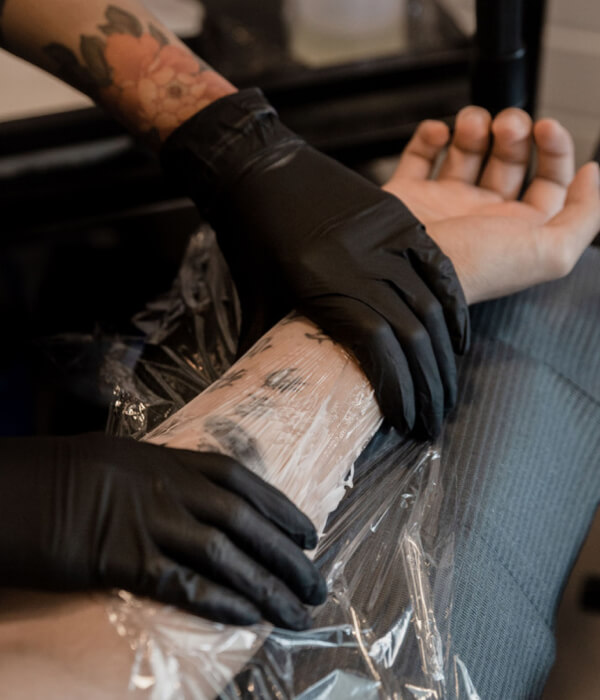
2. Causes a Drop in Income
Whether you believe it or not, numbing creams speed up the process, which ultimately leads to less earnings for some artists. It is worth noting that different tattoo artists have different pricing structures. Some tattoo artists charge based on the specific piece being tattooed, while others charge based on the number of hours it takes to complete the tattoo. So, the ones who charge on an hourly basis particularly despise using numbing creams. This is because numbing creams shorten the duration of the tattooing process, which causes a drop in income for the artist.
3. Perceived Inconvenience
It is worth noting that each client has to undergo a patch test before actually using the numbing cream during the tattoo process. This patch test is to confirm that it doesn’t leave any bad impact on the client’s skin. The artist needs to wait somewhere around 10 to 20 minutes to observe if any reaction occurs. This wastes a lot of time for artists and for clients as well.
Also, know that numbing creams do not immediately start to work. Most numbing creams contain lidocaine, and it takes around 30 minutes to start working. This, in turn, consumes a lot of time of an artist, especially if he/she is very popular in the area. They may not have enough time to perform a patch test and wait for the cream to take effect. That’s why most of them hate using numbing creams prior to tattooing body artwork on their clients.
In addition, it takes time to apply and wipe off the numbing cream before the procedure. Some artists view the whole thing as time-consuming; hence, avoid using numbing creams.
Also See: 45 Unique Yoga Tattoo Ideas And Inspiration
4. Potential Side Effects
Every person’s body and skin type are unique. Numbing cream Side Effects may have varying degrees of success from one individual to the next. It is highly likely that a numbing cream may work on one client and does not work on another. That’s the reason a patch test is recommended prior to using a numbing cream, which is time-consuming, though. Some tattoo artists choose not to use numbing cream due to the potential risk of an allergic reaction. A painless tattoo cream may be effective for one individual but may cause a reaction in another person.
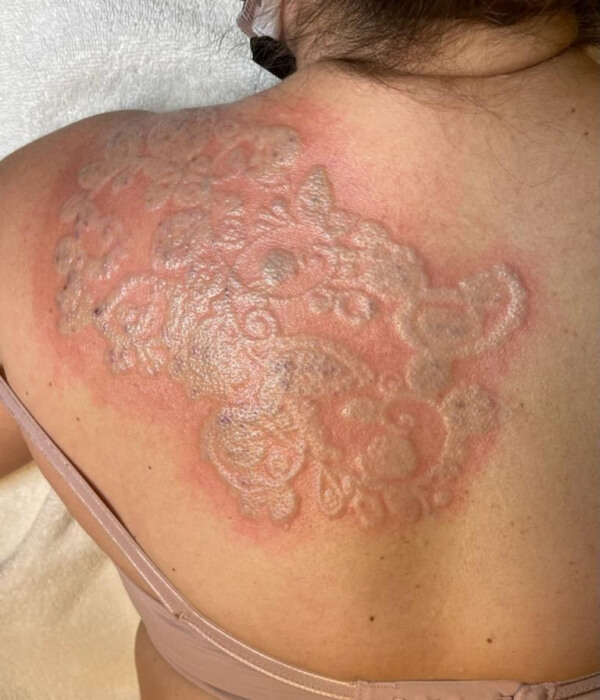
More often than not, numbing creams contain lidocaine, benzocaine, and tetracaine. All of these are anaesthetics that might cause allergic responses in certain people. Reactions can range anything from a minor rash and itching to life-threatening swelling and trouble breathing. In addition, alcohol and menthol present in numbing creams can lead to skin irritation, such as redness, blistering, and peeling. The degree of irritation may vary depending on a person’s skin type and current condition.
People with sensitive skin are highly vulnerable to chemicals present in numbing lotions. Some may even experience blistering, bleeding, infection, and scarring. In addition, one needs to know the exact quantity to be used on a person. Excessive application of cream can lead to systematic toxicity (a buildup of its components in the bloodstream). Signs of systemic toxicity might range from mild discomfort to severe convulsions. Considering all these factors, most tattoo artists avoid using lotions for inducing numbness.
5. Not Ideal for Large Tattoos
Each client has different requirements when it comes to tattoo design. Some clients prefer to have small pieces that take only an hour or so. In contrast, others prefer to have giant tattoo designs that may take 4 to 6 or more hours to complete. Usually, a numbing lotion stays effective for one hour and a half. After approximately 1.5 hours, it becomes ineffective on the skin.
A lotion can still work in the case of a small-size tattoo, but for a large tattoo design, it is a BIG NO. The duration of the effects is not sufficient for large tattoos. Large tattoo designs are time-consuming. Moreover, some large tattoos even require intricate designing, such as a Mandala Tattoo design. Using a numbing cream prior to creating a large tattoo can significantly hamper the whole process.
Wondering how?
Of course, a person will have no or very little pain for the first one and a half hours; the moment cream stops being effective, he/she will start feeling excruciating pain (which is inevitable in the case of body artwork). At the first sign of discomfort, the client will likely wish to halt the procedure while he adjusts to the pain. If the cream wasn’t used in the place, the person would have eventually become okay with pain.
6. Traditional Belief
As said earlier, tattoos come with pain. Pain is an inevitable part of the process. Some tattoo artists strongly believe that it is important for clients to personally experience the pain that comes with getting a tattoo. It usually happens in the case of tattooists with old-school mindsets or maybe who have been in the industry for quite a long time. They are not receptive to alternative methods, which makes them avoid creams or lotions to induce numbness.
Also See : Is CeraVe Good For Tattoos? Everything You Need To Know
7. Interfere the Process
Getting a flawless tattoo design is what we all require when we opt for body artwork. It is because tattoos are permanent designs that remain with an individual for a very long time (almost lifetime). In such a situation, having an unsightly tattoo design will cause disappointment and regret. No tattoo artist would ever want to create an unsightly tattoo design.
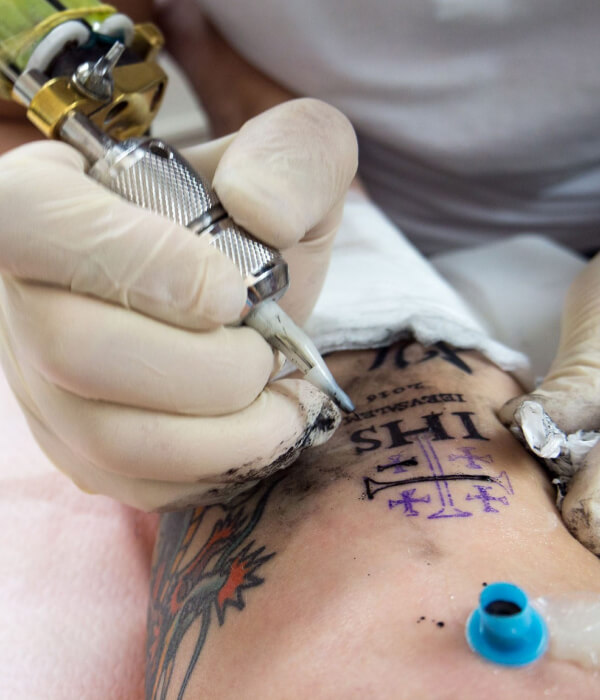
Some tattoo artists believe that the use of numbing lotions may interfere with the quality of the tattoo ink, which may lead to poor outcomes. As said earlier, creams and lotions that are there to alleviate pain contain chemicals, including benzocaine, lidocaine, and tetracaine (BLT) compounded mixture. Overuse of numbing cream not only causes allergic reactions but can also affect the tattoo ink. That’s the reason many tattoo artists discourage the use of numbing lotions.
8. Perception of Strength
Enduring pain is not everybody’s cup of tea. Some people really find it tough to endure the pain that comes with tattooing. And that makes some tattoo artists think that they are not the ideal candidate for the body artwork. According to them, not enduring pain doesn’t make them an ideal candidate for the process. They strongly believe that tattoos should be reserved for individuals who are able to withstand pain.
Putting it all together…
So, these are the potential reasons why tattoo artists are unenthusiastic about using numbing creams. Tattoos with numbing cream are an option, but you should discuss this with your artist before getting one. Your tattoo artist should be in favour of that if you really want to get your tattoo with numbing lotion.
A Small Piece Of Advice (for those planning to get their first tattoo):
Do not ever apply a numbing lotion prior to the tattoo process. Numbing lotions are easily available in the market. Some brands even recommend using them one hour prior to the tattoo process, which is not wise. Know that all creams contain some chemicals (no matter how much they claim that they don’t). It is difficult to predict how different chemicals will react on your skin. You may not experience any bad outcome (which is, of course, a great thing), but you can’t be certain that it won’t do any harm to your skin. In such a situation, it is good to listen to what your artist says. And if by chance you use it prior to your tattoo, make sure to inform your artist beforehand.
Let’s now take a look at some of the frequently asked questions related to numbing creams. Here we go…
FAQs
1. How do we know whether or not an artist uses a numbing lotion?
The only way to know whether or not your artist uses numbing lotions prior to tattooing is to meet him in person. It is advised to meet your tattoo artist prior to getting your tattoo. Having a one-on-one meeting with your artist will help you have clarity on tattoo artwork. In this meeting, your tattoo artist will ask you about the design that you want to get along with its placement. Some top-notch tattoo artists even ask about the inspiration behind the design so that they can help you refine it.
At the same time, you can also ask questions pertaining to tattoo design, such as the cost of the artwork that you’re planning to get, whether or not they use numbing creams, and so on. It is crucial to have all your doubts clear before getting a tattoo.
2. If my tattooist doesn’t use numbing cream, can I use it myself?
Well, we suggest not doing so. As you know, numbing creams are anesthetics; they are formulated using many chemicals. Using a numbing lotion without experts’ advice is not wise at all. Tattoo artists and medical experts who use these creams on their clients are experts. They know exactly what quantity of numbing cream should be applied to a person. Also, an expert tattoo artist will always carry out a patch test on your skin to make sure there are no reactions or side effects of it on your skin. Overuse of cream can cause severe issues. If you do it all by yourself, you may have to bear the consequences, which may range from mild reactions to severe issues, such as the occurrence of blisters, systematic toxicity, and so on.
3. Does the tattoo studio add on a fee for using numbing cream?
It is different for different artists. Most tattoo artists do not at all use numbing lotions. They prefer creating body artwork without inducing numbness. While the ones who use may or may not charge separately for the same. It’s advised to ask your tattoo artist prior to getting your tattoo so that you don’t pay anything extra after the tattoo is done!
Thanks for reading!
Hopefully, you enjoyed reading it and have gathered some astute information from it!
Happy Tattooing… 😊 😊

